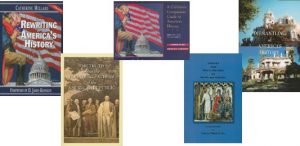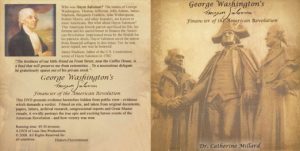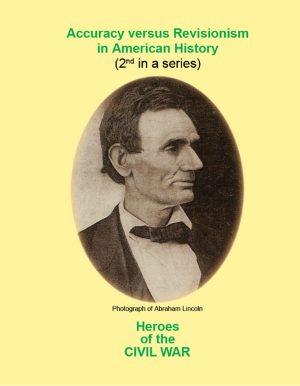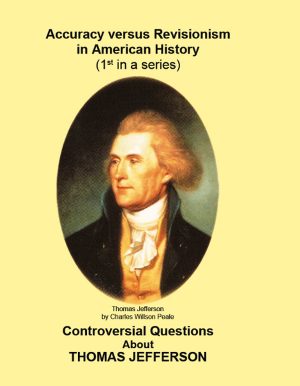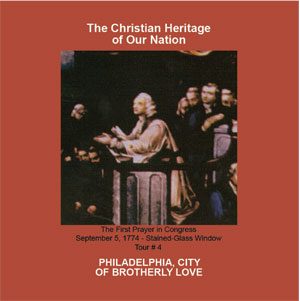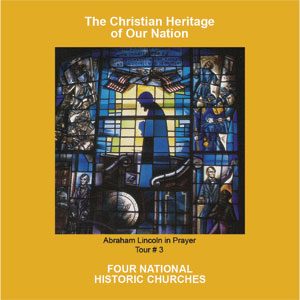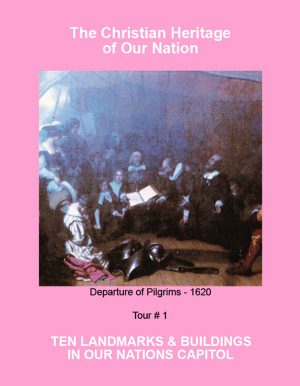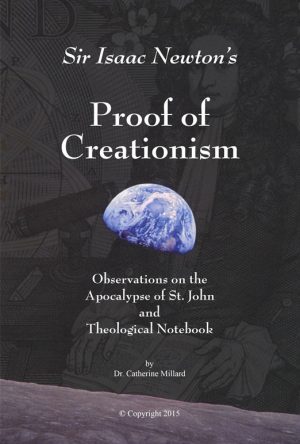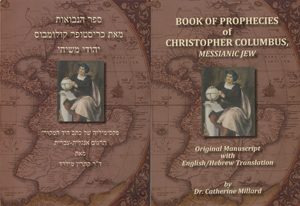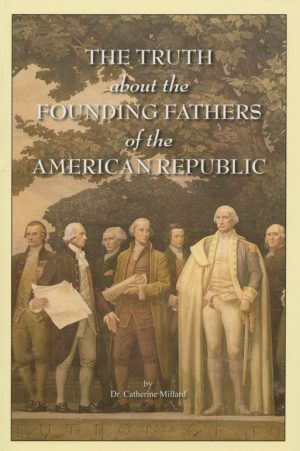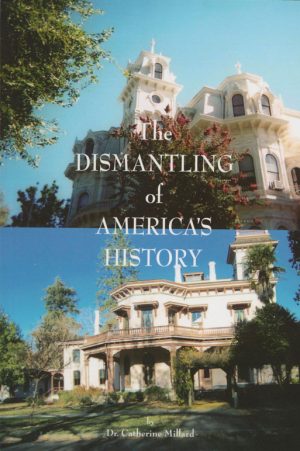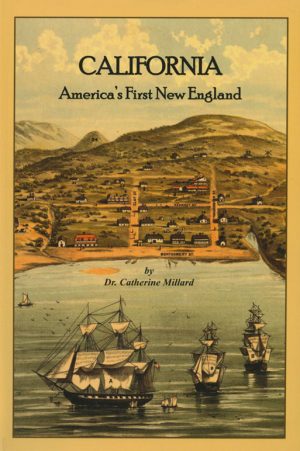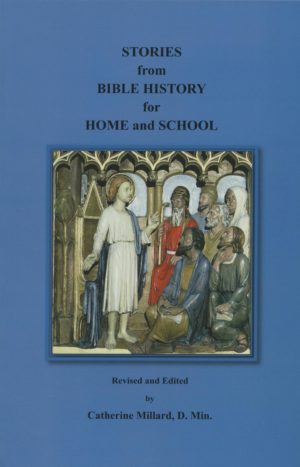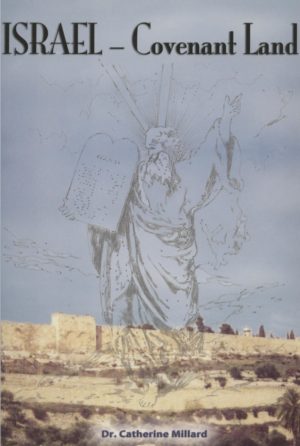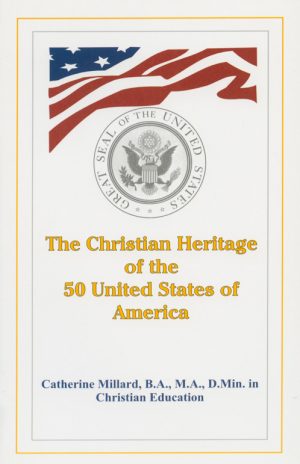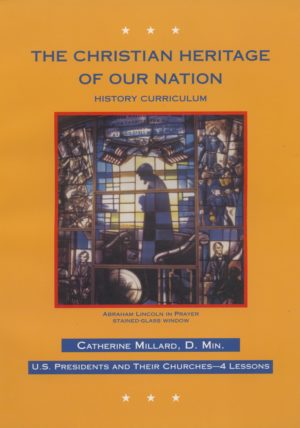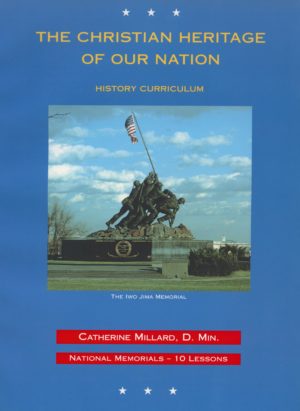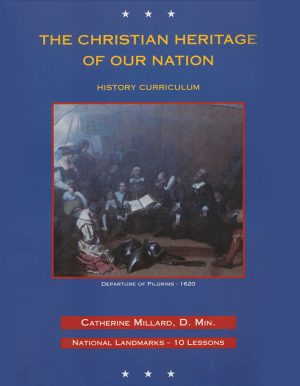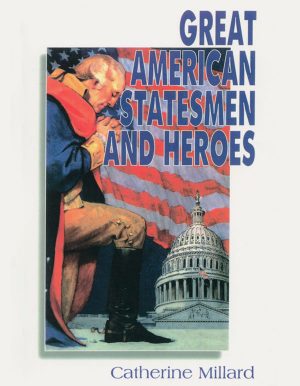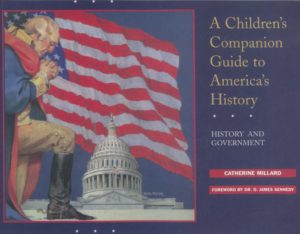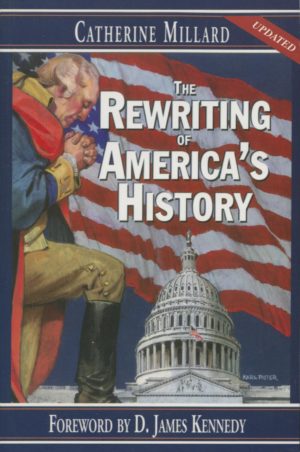Excerpts from Governor William Bradford’s moving account of the inception, motivation, trials and reasons for his little band of Pilgrims’ embarkation upon their arduous journey on the Mayflower, to these inhospitable and danger-strewn foreign shores, are here quoted. There are many opinions as to why the first settlers came to America, but why should we take anyone’s educated opinions, when we have the first governor of Plymouth Plantation’s detailed historical account? The purpose is to show the reader that all history is simply the outworking of God’s majestic plans, in and through the lives of His people in opposition of Satan’s working in the lives of those he controls and deceives. It is interesting that in Bradford’s history Of Plimoth Plantation,1 the first nine chapters are devoted to the history of the Christian church prior to their arrival at Cape Cod in November, 1620. As Bradford states, it was essential that he begin with the very root. And that he did. We see this in chapter one, as he discusses the opposition that took place following the Reformation and the downfall of popery:
It is well knowne unto ye godly and judicious how since ye first breaking out of ye lighte of ye gospel in our Honourable Nation of England, (which was ye first of nations whom ye Lord adorned ther with, after the grosse darkness of popery which had covered and overspread ye Christian world), what wars and opposissions ever since, Satan hath raised, maintained, and continued against the Saints, from time to time, in one sort or other. Some times by bloody death and cruell torments; other whiles imprisonments, banishments, and other hard usages; as being loath his kingdom should goe downe, and trueth previale, and ye churches of God reverte to their ancient puritie and recover their primitive order, libertie and bewtie. But when he could not prevaile by these means, againste the maine trueths of ye gospell, but that they began to take rooting in many places, being watered by ye blooud of ye martires, and blessed from heaven with a gracious increase; he then begane to take him to his ancient strategeme used of old againste the first Christians. That when by ye bloody and barbarous persecutions of ye heathen Emperours, he could not stop and subvert the course of ye gospell, but that it speedily overspred with a wonderfull celeritie the then best known parts…ye professours themselves, (working upon their pride and ambition, with other corrupte passions incidente to all mortall men, yea to ye saints themselves in some measure), by which wofull effects followed; as not only bitter contentions, and hartburnings, schismes, with other horrible confusions, but Satan tooke occasion and advantage therby to foist in a number of vile ceremoneys, with many unprofitable cannons and decrees, which have since been as snares to many poore and peaceable souls even to this day. So as in ye anciente times, the persecutions by ye heathen and their Emperours, was no tgreater than of the Christians one against other;…
Bradford documented the split that took place among professing Christians as follows:
The one side labored to have ye right worship of God and discipline of Christ established in ye church, according to ye simplicitie of ye gospell, without the mixture of men’s inventions, and to have and to be ruled by ye laws of God’s word, dispensed in those offices, and by those officers of Pastors, Teachers, and Elders, etc. according to ye Scriptures. The other partie, though under many colours and pretences, endevored to have ye episcopall dignities (affter ye popish maner) with their large power and jurisdiction still retained; with all those courts, cannons, and ceremonies, togeather with all such livings, revenues, and subordinate officers, with other such means as formerly upheld their antichristian greatnes, and enabled them with lordly and tyrannous power to persecute ye poore servants of God. This contention was so great, as neither ye honour of God, the commone persecution, nor ye mediation of Mr. Calvin and other worthies of ye Lord in those places, could prevaile with those thus episcopally minded, but they proceeded by all means to disturbe ye peace of this poor persecuted church, even so farr as to charge (very unjustly, and ungodily, yet prelatelike) some of their cheefe opposers, with rebellion and high treason against ye Emperour, and other such crimes…
Governor Bradford goes on to give the lamentable results of this schism:
…Religion hath been disgraced, the godly greeved, afflicted, persecuted, and many exiled, sundrie have lost their lives in prisones and otherways. On the other hand, sin hath been countenanced, ignorance, profannes, and atheisme increased, and the papists encouraged to hope againe for a day…so that in England at this day the man or woman that begins to profes Religion, and to serve God, must resolve with him selfe to sustaine mocks and injuries even as though he lived amongst ye enimies of Religion…
The historian weighs all these cataclysmic happenings in the scales of Scripture, and concludes:
…but it is ye Lord’s doing, and ought to be marvelous in our eyes!…Every plante which mine heavenly father hath not planted (saith our Saviour) shall be rooted up. (Matt. 15:13)…Behold, I come unto ye, O proud man, saith the Lord God of hosts; for thy day is come, even the time that I will visite thee. Jer. 50:31…
and:
When the Lord brougt againe the captivitie of Zion, we were like them that dreame. Psa: 126:1. The Lord hath done greate things for us, whereof we rejoyce. v. 3. They that sow in teares shall reap in joye…
Bradford gives much credit to the preachers and true men of God, such as John Robinson, William Brewster, Richard Clifton and others. Through them, people saw their sinful conditions, repented and received God’s grace to change their lives. But they soon met with persecution and scorn which, Bradford tells us, they bore with much patience. Furthermore, God revealed to them that the “lordly and tyrannous power of ye prelates ought not to be submitted unto: which was contrary to the freedome of the gospell, would load and burden men’s consciences, and by their compulsive power make a prophane mixture of persons and things in ye worship of God.”
The afflictions took a turn for the worse; Bradford likens their former problems to “fleebites” in comparison to their latter sufferings. In 1607, concluding that it was impossible to continue the worship of God in England, they agreed to resettle in Holland where they had heard they would have freedom of religion. It was not an easy undertaking, as Bradford describes below:
Being thus constrained to leave their native soyle and countrie, their lands and livings, and all their friends and famillier acquaintance, it was much, and thought marvelous by many. But to goe into a countrie they knew not (but by hearsay), wher they must learne a new language, and get their livings they knew not how, it being a dear place, and subjecte to ye miseries of war, it was by many thought an adventure almost desperate, a case intolerable, and a miserie worse than death. Espetially seeing they were not acquainted with trade nor traffique, (by which ye countrie doth subsiste), but had only been used to a plaine countrie life, and ye inocente trade of husbandrey. But these things did not dismay them (though they did sometimes trouble them) for their desires were sett on ye ways of God and to enjoye His ordinances; but they rested in His Providence, and knew whom they had believed…
Life in Holland was very difficult. There were extremely long hours for the adults and the children alike. They feared the corruption of their children by the native youth. Difficulties finally drove them to leave Holland.
After much prayer and the consideration of various resettlement locations, it was decided it would be best to live as a distinct body by themselves, under the government of Virginia.
Bradford describes their departure from Holland being rooted in their love of God:
So being ready to departe, they had a day of solleme humiliation, their pastor taking his texte from Ezra 8:21: “And ther at ye river, by Ahava, I proclaimed a fast, that we might humble ourselves before our God and seeke of Him a right way for us, and for our children, and for all our substance.” Upon which they spente a good parte of ye day very profitably and suitable to their presente occasion. The rest of the time was spent in powering out prairs to ye Lord with great fervencie, mixed with abundance of tears. And ye time being come that they must departe, they were accompanied with most of their brethren out of ye citie, unto a towne sundrie miles off called Delftes-Haven, wher the ship lay ready to receive them. So they lefte ye goodly and pleasante citie, which had been ther resting place near 12 years; but they knew they were pilgrimes (Hebrews 11), but lift their eyes to ye heavens, their dearest cuntrie, and quieted their spirits…
What could now sustaine them but ye spirite of God and His grace? May not and ought not the children of these fathers rightly say: Our fathers were Englishmen which came over this great ocean, and were ready to perish in this wilderness; (Deuteronomy 26: 5,7) but they cried unto ye Lord, and He heard their voyce, and looked on their adverstie, etc. Let them therefore praise ye Lord, because He is good, and His mercies endure for ever. (107 Psalm: v. 1, 2, 4, 5, 8) Yea let them which have been redeemed of ye Lord, show how He hath delivered them from ye hand of ye oppressour. When they wandered in ye deserte wilderness out of ye way, and found no citie to dwell in, both hungrie, and thirstie, their sowle was overwhelmed in them. Let them confess before ye Lord His loving kindness, and His wonderful works before ye sons of men.
They arrived at Cape Cod, Massachusetts, on November 11, 1620. Ocean storms had blown them off course. Thus, they arrived in Massachusetts rather than their originally intended Virginia destination, King James I having granted a charter to the Virginia Company for its incorporation. (First Charter of Virginia, April 10, 1606.)…
The1620 Pilgrims, finding themselves about to arrive upon land with no established form of government as it would have been, had they landed in Virginia, saw the necessity to establish some type of governmental order among themselves before landing. The result was the Mayflower Compact, a charter which they drew up and signed, electing their own officers, and binding themselves to work together for their common Christian faith and their common good. From this simple mutual agreement, took form the first American Commonwealth, the beginning of “government of the people, by the people, for the people.” This document, establishing the Pilgrims’ priorities, read as follows:
THE COMPACT
In the Name of God, Amen. We, whose names are underwritten, the loyal subjects of our dread sovereign Lord King James, by the grace of God, of Great Britain, France and Ireland King, defender of the faith, etc., having undertaken, for the glory of God, and advancement of the Christian faith, and honor of our king and country, a voyage to plant the first colony in the northern parts of Virginia, do, by these presents, solemnly and mutually, in the presence of God and one of another, covenant and combine ourselves together into a civil body politic, for our better ordering and preservation, and furtherance of the ends aforesaid; and by virtue hereof to enact, constitute and frame such just and equal laws, ordinances, acts, constitutions, and offices, from time to time, as shall be thought most meet and convenient for the general good of the colony; unto which we promise all due submission and obedience. In witness whereof we have hereunder subscribed our names at Cape Cod the 11 of November, in the year of the reign of our sovereign lord, King James of England, France, and Ireland and the eighteenth, and of Scotland the fifty-fourth, Anno Dom. 1620. 2
It had been a difficult journey. Bradford tells us that, of the 103 Mayflower Pilgrim disembarking passengers, 51 of these died during the first New England winter. However, this stalwart band of settlers who had braved the dangerous seas and inhospitable New England shores, to live their lives in harmony with God’s Holy Scriptures, persevered in prayer, obedience and praise to Almighty God…
___________________________
National Monument to the Forefathers
Plymouth, Massachusettes
There are many outstanding monuments and memorials in Plymouth, Massachusetts which glorify God. In stone, marble, granite and bronze, they relate a heroic Christian past, worthy to be passed down to succeeding generations of Americans, vibrantly exuding the gospel message of eternal life, the Pilgrims’ main concern.
The predominant and most impressive of these is the National Monument to the Forefathers. A poem read at the dedication of this monument on August 1, 1889, reads thus:
This Monument, where Virtue,
Courage, Law and Learning sit,
Calm Faith, above them, grasping Holy Writ;
White hand upraised o’er beauteous trusting eyes,
and pleading finger pointing to the skies.
– John Boyle O’Reilley.
Towering high in its majestic splendor, the central figure of the monument is Faith. She stands upon a main pedestal, one foot resting upon a replica of Plymouth Rock, and holds an open Bible in her left hand. Her right hand points heavenward. The symbolism is trust in God and His unfailing words, written down for us in the Bible.
Four smaller, seated figures represent the Christian values and principles promulgated by the Pilgrims themselves. They are Morality, Law, Education and Liberty.
Morality holds the Ten Commandments in her left hand and the scroll of Revelation – the last book of the Bible, in the right. She is flanked by an Old Testament Prophet on one side, and the Evangelists on the other.
Law is tempered with Justice on the one hand, and Mercy on the other.
Education is represented with the Wisdom of maturity on one side and Youth following Experience on the other.
Liberty is accompanied by Peace on the one side and the Overthrow of Tyranny on the opposite side.
The main pedestal has four polished facades. Two of these bear the names of the Mayflower Pilgrims, while another bears the inscription “National Monument to the Forefathers. Erected by a grateful people in remembrance of their labors, sacrifices and sufferings for the cause of Civil and Religious Liberty.” The upper half of the fourth panel was, in June, 1989, inscribed with the moving words from William Bradford’s account Of Plimouth Plantation, found in the dedication to this book.
This inspiring statue is made of Maine granite. Its cornerstone was laid on August 1, 1859. Designed by Hammatt Billings, her height is 81 feet from the ground to the top of her head. The total weight of the National Monument to our Forefathers is 180 tons.
Burial Hill
The most striking monument at Burial Hill is that to Governor William Bradford. A marble obelisk marks his grave, with a Latin inscription bearing the phrase:
“What our fathers with so much difficulty attained, do not basely relinquish.”
The inscription on the south side reads: “H.I. William Bradford of Austerfield, Yorkshire, England. Was the son of William and Alice Bradford. He was Governor of Plymouth Colony from 1621 to 1633; 1635 to 1637; 1639 to 1643; 1645 to 1657.”
An inscription to the north side follows:
“Under this stone rest the ashes of William Bradford, a zealous puritan and sincere Christian Governor of Plymouth Colony from 1621 to 1657, (the year he died) aged 69, except 5 years, which he declined.”
Since Bradford was a student of Old Testament Hebrew, it is appropriate that a Hebrew inscription, beautifully reiterating his life, is engraved upon his tombstone:
“Let the right hand of the Lord awake.”
To learn more, click here. (Rewriting book)
_________________
Bibliography:
1
Bradford, William. Of Plimoth Plantation. (From the original Manuscript). Boston: Wright and Potter Printing Company, 1898. Rare Book Collection, Library of Congress, Washington, D.C.
2
Ibid.
